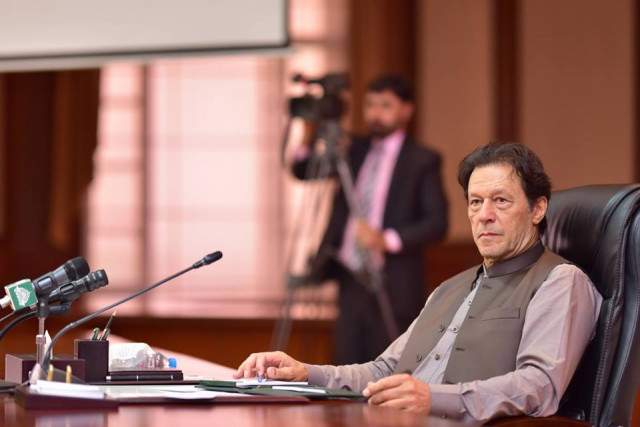Naya Pakistan with the same old political economy
Many PTI electables have served under previous govts and have vested interests in preserving socio-economic status quo

PM Imran Khan. PHOTO: PID
The first signs of Naya Pakistan being unable to deliver on its promises of bringing about meaningful change had become evident early. The new government was full of electables, many of whom had not only served under the Musharraf regime or the earlier PPP and PML-N governments, but also had strong vested interests in preserving the socio-economic status quo.
As far as defying external economic agendas goes, one would have thought that the economic advisory council of the PTI government included enough retired IMF and World Bank personnel to exert behind-the-scenes influence for formulating economic policies palatable to donor agencies. But apparently that has not proven enough.
While the performance of the former PTI finance minister was hardly inspirational, his removal and the appointment of a former World Bank staffer have clearly signalled the government’s inability to chart an autonomous course of financial management. Any ambiguity concerning the government’s resolve to retain control over monetary policies has been brushed aside as well, by nomination of a serving IMF employee to take over as SBP governor.
These moves are, however, not unprecedented. Pakistan has long been under the shadow of external reform agendas. For instance, the role of the Harvard Advisory Group in the 1960s, which managed to boost elite-led economic growth in our country but remained unable to help that growth trickle down to the masses.
Most major economic policy-making institutions in our country have included senior and/or retired IMF and World Bank personnel, at one time or the other, who have put in place a specific assortment of policies aiming to enable debt servicing while trying to boost growth. With increasing reliance on neo-liberal policies, and market-based mechanisms to encourage growth, these policies have often implied curbing public spending, and led to widening inequality.
The new SBP governor’s appointment is problematic, and has been dubbed by the opposition a move whereby Pakistan is now allowing the IMF to gain access to the desperately-needed foreign funds.
Despite hectic efforts of the PTI government to secure bilateral support from friendly countries, we evidently still need IMF funds. Assuming that the recent reshuffling will enable Pakistan to secure another IMF bailout, let us consider the implications that this bailout will unleash. Here looking at a few other countries which got recent IMF bailouts is instructive. Consider Greece or Egypt. The IMF-prescribed fiscal measures initially made matters much worse as the Greek economy slid into the deepest and longest depression in any advanced country since the 1930s. In the last few years, the Greek economy has turned the corner. Last year the country recorded the strongest economic growth since 2007. However, ordinary Greeks are still struggling to claw out from under mountains of debt. The country’s unemployment rate is still among the highest in the EU. The situation in Egypt is similar. Its forex reserves have risen but things for the masses remain unchanged. Pakistan is already seeing soaring prices. One immediate impact of the IMF lending we will probably see is a further depreciation of the rupee, which will worsen the economic situation of average households. Whether Pakistan will be able to deliver the fruits of growth expected after the bitter pill of IMF reforms to the marginalised segments of society, and to our youth, which had placed high hopes in the present government, remains a tall order.
Published in The Express Tribune, May 10th, 2019.
Like Opinion & Editorial on Facebook, follow @ETOpEd on Twitter to receive all updates on all our daily pieces.
















COMMENTS
Comments are moderated and generally will be posted if they are on-topic and not abusive.
For more information, please see our Comments FAQ